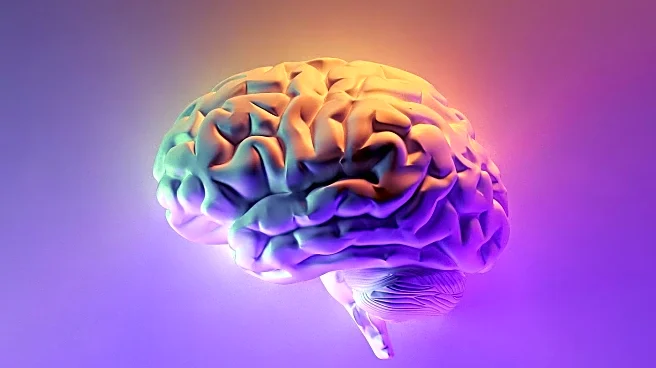What is the story about?
What's Happening?
Researchers from POSTECH and Sungkyunkwan University have discovered a link between oral bacteria and Parkinson's disease via the gut-brain axis. The study, published in Nature Communications, reveals that Streptococcus mutans, an oral bacterium, can colonize the gut and produce metabolites that may trigger Parkinson's disease. These metabolites, including imidazole propionate, can enter systemic circulation and reach the brain, contributing to the loss of dopaminergic neurons. The research highlights the role of the signaling protein complex mTORC1 in this process, suggesting that targeting the oral-gut microbiome could offer new therapeutic strategies for Parkinson's.
Why It's Important?
This discovery provides a new perspective on the pathogenesis of Parkinson's disease, emphasizing the potential impact of gut microbiota on neurological health. Understanding the connection between oral bacteria and brain disorders could lead to innovative treatments targeting the gut microbiome. This research may pave the way for developing therapies that mitigate neuroinflammation and neuronal loss, offering hope for patients with Parkinson's. The findings also underscore the importance of interdisciplinary research in uncovering complex disease mechanisms, potentially influencing future studies in neurology and microbiology.
What's Next?
The study suggests that further exploration of the gut-brain axis could lead to novel therapeutic approaches for Parkinson's disease. Researchers may focus on developing treatments that inhibit mTORC1 activation or modify gut microbiota composition to prevent disease progression. Clinical trials could be initiated to test the efficacy of these strategies in human patients. Additionally, the research community may investigate other neurological disorders potentially linked to gut microbiota, expanding the scope of microbiome-related therapies.
















